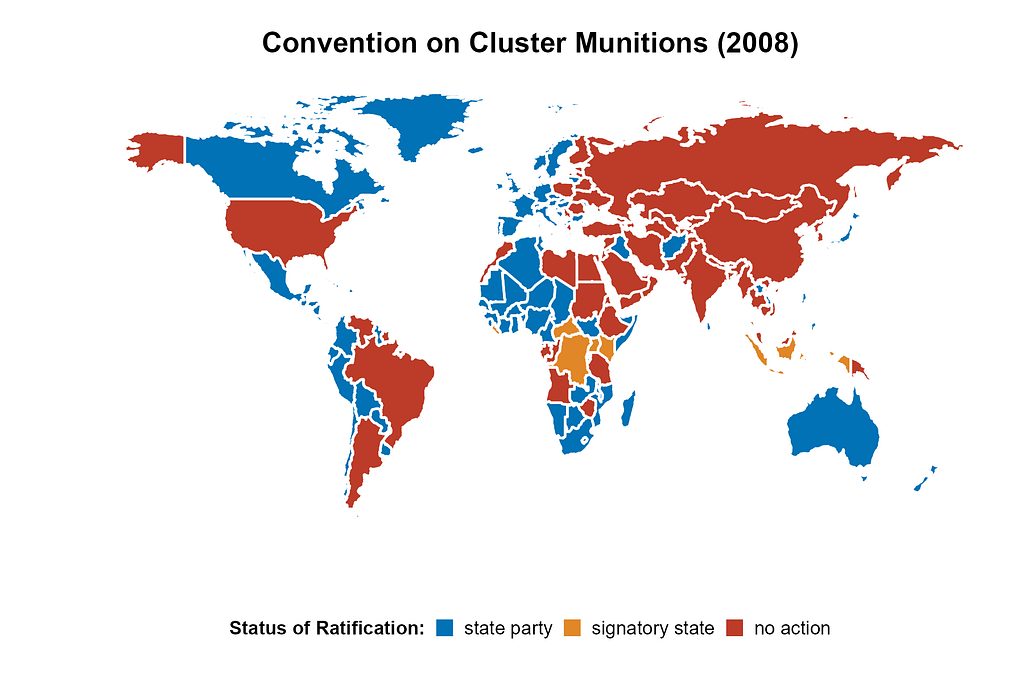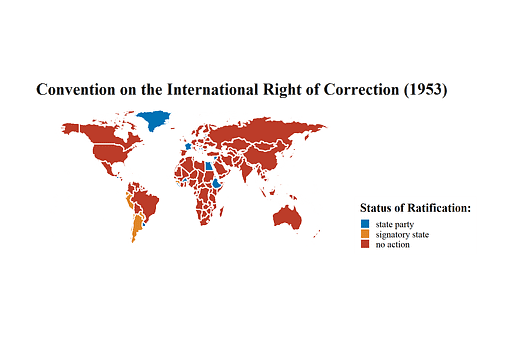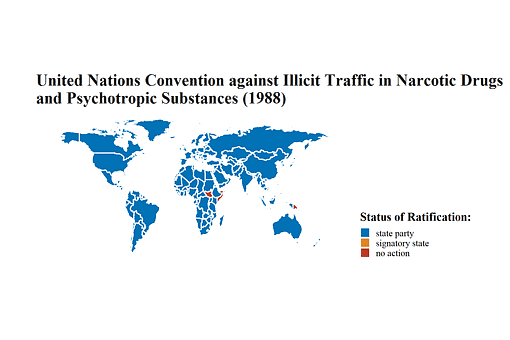The Convention on Cluster Munitions (CCM), opened for signatures on December 3, 2008, and entered into force on August 1, 2010, shares common goals with other disarmament treaties, such as those concerning biological and chemical weapons. Its primary objective is the eradication of cluster munitions, encompassing both stockpiled munitions and unexploded submunitions, while also providing aid to affected populations. Cluster munitions, defined by the treaty, include munitions designed to disperse submunitions, ranging from flares to explosives, with unexploded submunitions posing significant risks due to their potential volatility.
The CCM imposes several obligations on state parties to effectively eliminate all forms of cluster munitions. These obligations encompass the destruction of existing stockpiles, with state parties mandated to report such destruction at the Meetings of State Parties. Additionally, the treaty requires assistance in the destruction of unexploded submunitions within their jurisdictions, with provisions for seeking help from other state parties if necessary.
Another pivotal aspect of the CCM is the provision of assistance to victims of cluster munitions. State parties are obligated to offer non-discriminatory medical and psychological care to affected individuals, along with implementing national legislation reflective of this commitment. Crucially, victims must be consulted and involved in the legislative process.
The CCM’s entry into force on August 1, 2010, per Article 17 of the convention, occurred six months after the ratification or accession of the 30th state party. Utilizing data from the United Nations Treaty Collection’s website, we mapped the current ratification status of the CCM, classifying UN member states into three categories: states that have not taken any action, signatory states that have not ratified the convention, and states parties that have ratified it.

The choropleth map displays data on the ratification status of the convention among 193 countries, revealing that 112 countries have ratified the convention, while 12 are signatories. Interestingly, 22 out of the 28 countries in NATO are participants as well.
Despite the considerable number of ratifications and signatories, a significant portion of countries worldwide have yet to take action on the Convention. Notably, participation has been predominantly observed among Western European and Western African countries, along with a few nations in the East Pacific. However, the “Cluster Munition Norm,” as described by Elvira Rosert, has not gained traction among several prominent countries, including those with substantial stockpiles such as the United States, China, and Russia. According to the BBC, the US asserts that cluster munitions have “clear military utility in combat,” indicating reluctance to abandon them.
The ongoing conflict in Ukraine has reignited scrutiny of the cluster munition norm. Despite neither Russia nor Ukraine being members of the convention, critics in the US opposed the Biden Administration’s decision to supply Ukraine with such weapons. However, such critiques may carry less weight when the aggressor is employing the weapons in question.
While the problem of cluster munitions is well-defined, the lack of adoption highlights the challenges in increasing participation. Traditional strategies rely on highlighting the harms of such weapons to generate substantial pressure on governments through public opinion. It is conceivable that the reconstruction period following the war in Ukraine may shed more light on the dangers of cluster munitions, given the heightened attention surrounding the conflict.
Ultimately, while the Convention on Cluster Munitions (CCM) holds promise as a disarmament treaty, its effectiveness is undermined by the lack of support from major military powers like the United States, Russia, and China. Without backing from these influential states, the CCM may not achieve its full potential in shaping global disarmament efforts.
About the authors:
Scott Feinstein is studying Philosophy and International Relations at Drew University.
Josiah Nunez is a senior (C’24) majoring in Neuroscience and minoring in Public Health as well as Law, Justice, and Society.
Editor's note: This entry was written for Drew University's PSCI 329 Principles in International Law course.


